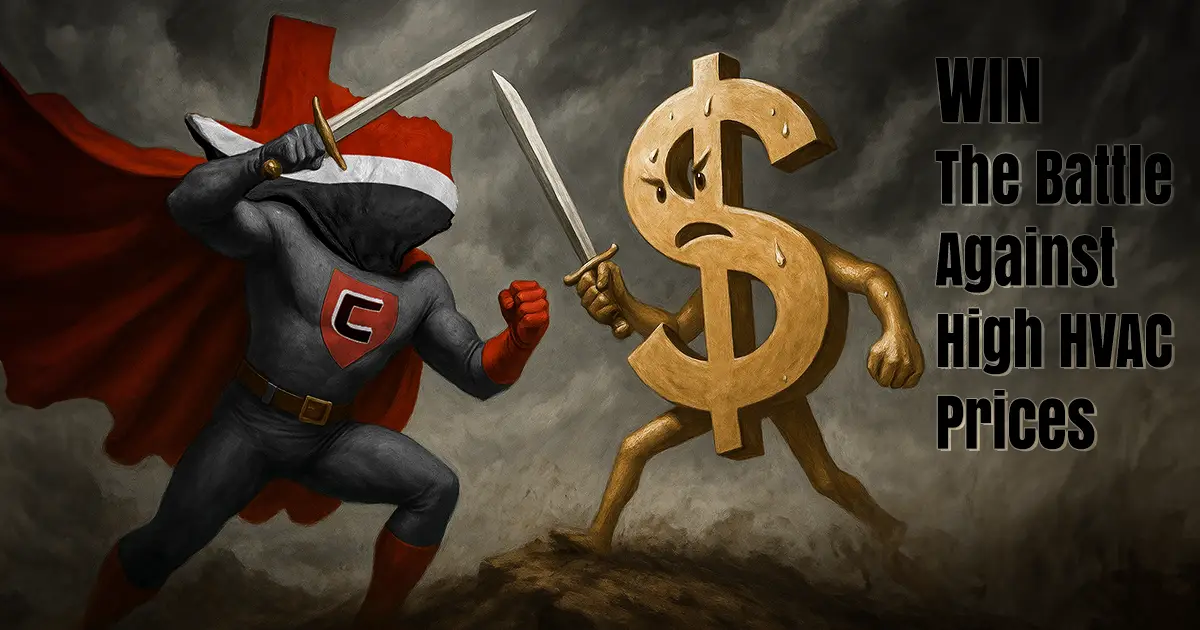Here’s How to Stay Comfortable Without Overpaying
If you’ve been thinking about upgrading your HVAC system this year, there’s one thing you should know: prices are going up — fast.
At CAST Heating & Air Conditioning, we realize that our customers value comfort, efficiency, and smart spending. But with new tariffs, environmental regulations, and supply chain disruptions all converging in 2025, the cost of heating and cooling your home is climbing higher than most people expected.
So, what’s behind these price increases? Is it just inflation or something more? And most importantly, what can you do about it?
In this post, we’re breaking down what’s driving HVAC costs in 2025 and offering practical strategies for homeowners in east Dallas to save money and stay ahead of the curve.
What is Driving HVAC Prices Up in 2025?
Let’s start with the big picture: HVAC systems are expected to cost 20% to 40% more in 2025 compared to just a year or two ago. Here’s why.
Trump’s New Tariffs Are Raising Equipment Costs Across the Board
In April 2025, President Trump announced a series of “reciprocal” tariffs on goods imported from countries like China, Japan, Taiwan, and the European Union. These tariffs hit steel, aluminum, and HVAC components particularly hard — all materials that go into your furnace, air conditioner, or heat pump.
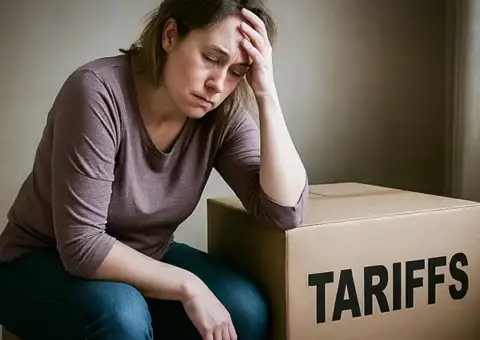
Here’s a quick breakdown of what’s happening:
- 25% tariff on all steel and aluminum — which directly affects HVAC frames, coils, and compressors
- Additional tariffs of up to 46% on HVAC equipment and parts from key exporters like Vietnam, China, and Taiwan
- Even U.S.-assembled systems are affected since many components are still imported
These costs don’t just hit manufacturers. They’re already being passed along the supply chain to distributors, installers, and — ultimately — homeowners like you. As one analyst put it, these tariffs represent a “worst-case scenario” for the HVAC and construction industries. And there’s no clear end in sight.
Refrigerant Changes Are Adding Even More to the cost
If tariffs weren’t enough, 2025 also marks a major shift in the types of refrigerants used in HVAC systems.
The EPA is phasing out R-410A, a widely used refrigerant with a high Global Warming Potential (GWP), and replacing it with R-454B and other low-GWP options. While better for the environment, this change comes with a hefty price tag.
Why refrigerant updates are driving up costs:
- Manufacturers must redesign systems to use the new refrigerants
- Factories are being retooled, costing companies millions
- Technicians require new certifications and training
- Temporary supply chain hiccups are leading to product shortages
- Replacement parts for existing systems may become more challenging and expensive
Other Cost Pressures You Should Know About
There are a few other factors contributing to rising HVAC prices this year:
- Labor shortages in manufacturing and installation are leading to higher wages and service costs
- Smart and energy-efficient HVAC systems are becoming more popular — and while they save money long-term, they often come with a higher upfront cost
- Fuel costs are climbing, thanks to new tariffs on oil and natural gas from Canada and Mexico
- Some materials like copper and plastics have also seen cost spikes due to global demand and shipping disruptions
It’s a perfect storm — unfortunately, HVAC is right in the middle of it.
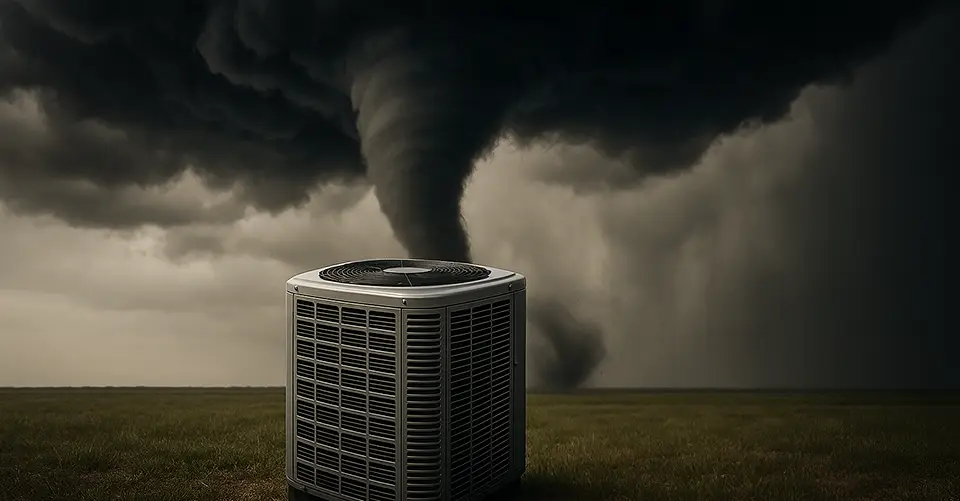
So What Does This Mean for You as a Homeowner?
If your HVAC system is aging, inefficient, or already giving you trouble, waiting could cost you — literally. New systems will continue to get more expensive, and some models and parts may become obsolete or out of stock due to refrigerant phaseouts.
That said, you still have options. Let’s shift gears to what you can do. At CAST Heating & Air Conditioning, we’ve helped hundreds of Dallas-area homeowners make savvy HVAC decisions, even in tricky markets. Here’s how you can fight back against price inflation:
1. Replace Your System Before Prices Rise Further
If your HVAC system is over 10 years old, now may be the best time to replace it. You’ll avoid:
- Future tariff-driven price hikes
- Shortages on old refrigerants like R-410A
- Higher repair costs due to aging parts
Think of it this way: replacing your system now could lock in a lower price before the next wave of increases hits later this year.
2. Go Energy-Efficient to Earn Tax Credits and Lower Utility Bills
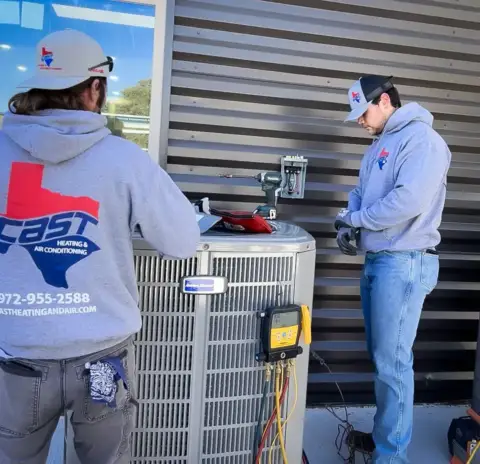
2025 is also a big year for federal energy tax incentives. Under the Energy Efficient Home Improvement Credit, homeowners can qualify for:
- Up to $2,000 for installing a high-efficiency heat pump
- Up to $1,200 for other efficiency upgrades (windows, insulation, central ACs, etc.)
- $150 for a certified home energy audit
To qualify, your new HVAC system must meet high SEER2 and EER2 standards — which most modern, energy-efficient systems do. These systems use less electricity, meaning lower monthly bills and long-term savings.
3. Explore Financing Options
At CAST Heating & Air Conditioning, we offer flexible financing plans that help spread out the cost of a new system. With 0% interest options and low monthly payments, you can:
- Upgrade now before prices spike
- Avoid draining your savings
- Keep your home comfortable without delay
Many homeowners in Dallas find that financing helps them balance comfort, efficiency, and budget.
4. Shop Smart: Consider Mini-Splits or Ductless Option
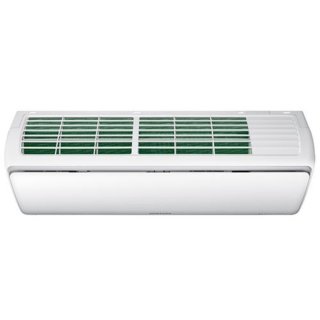
A ductless mini-split system could be a smart and affordable choice if your home doesn’t already have ductwork — or if you’re only looking to heat or cool specific rooms. The benefits of a ductless system include:
- Lower installation costs
- Targeted temperature control
- Great for home offices, additions, garages, or guest rooms
And thanks to new technology, mini-splits are now ultra-efficient — some even qualify for rebates and tax incentives, just like traditional systems.
5. Schedule a Home Energy Audit
Want to maximize savings and minimize energy waste? A home energy audit can identify areas where you’re losing heated or cooled air, such as:
- Poor insulation
- Leaky ducts
- Old windows or doors
- Gaps around electrical outlets or vents
An audit can help you prioritize upgrades and reduce the workload on your HVAC system — extending its life and lowering your bills. And remember: audits qualify for a $150 federal tax credit in 2025!
6. Look Into Local Rebates & Incentives
Alongside federal credits, many local utilities in Texas offer rebates for energy-efficient HVAC upgrades. These can range from:
- $100–$500 for high-SEER systems
- Extra cash-back for heat pumps or smart thermostats
- Special programs for low-income homeowners
Our CAST Heating & Air Conditioning team can help you navigate what’s available in the Dallas area and handle the paperwork to maximize your savings.
Final Thoughts
If your HVAC system is aging, inefficient, or on its last leg, this may be your last chance to get ahead of rising prices — and still qualify for valuable rebates and tax credits.
If you find yourself in this position and you’re ready to beat the price hikes, call CAST Heating & Air Conditioning. We are proud to be Dallas’s trusted HVAC experts. And when you call us, you’ll be working with a company that has been helping families throughout the area stay comfortable — and save money — for years.
Here’s how we can help you today:
- Free consultations on system upgrades or replacements
- Expert advice on rebates, tax credits, and financing options
- Professional energy audits and efficiency assessments
- Fast, reliable service with top-tier brands and technology
Whether you’re looking to replace a failing unit or make your home more energy-efficient, we’re here to guide you through every step. Call us today at (972) 955-2588 to schedule your free estimate.
